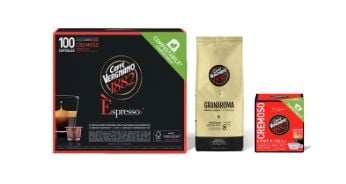
Among the many beautiful things that Mother Nature has given to us in all its magnificence is caffeine, which, however, belongs to that category of things that people like so much but...
The percentage of caffeine depends on the conjunction of certain variables, a series of factors that influence the entire process, from plantation up to the preparation of a cup of coffee, either at the café or in your home. It has been established that not all types of coffee contain the same amount. Even within the same variety of Arabica or Robusta the climatic conditions of each plantation can affect the original caffeine level and change it significantly. The treatments undergone by the crop in later stages also play a significant role. In coffee roasting, professionals define coffee as Dark Roasted or Light Roasted referring to the roast intensity, which can, to a minimum extent, affect the preservation and/or sublimation. Similarly, the grind size affects the extraction of the substances during the passage of water, resulting in higher or lower coffee strength.
But what happens when a variable amount of boiling water flows through ground coffee at a really high pressure? In other words, what are the effects on the quantity or, to be more exact, the volume, of the coffee?
In short coffee, there is less caffeine than in long coffee: the quantity is therefore directly proportional to the amount of water. An espresso ristretto is a lot stronger and its aroma is much more intense. However, since it contains considerably less water, often just a few drops, it releases a lower amount of substances. On the other hand, a greater amount of water is used to make long coffee; therefore, the quantity of caffeine extracted is a lot higher. Its density is lower but the stimulating effects on our body are considerably greater.
Before science and technology supported the free will of coffeeholics like us, the long coffee-short coffee dilemma was just the position taken by two different schools of thought, so confused and fickle that most of the times we merged and blended in unison as De Gustibus. The saying ‘Tell me which coffee you drink and I'll tell you who you are’ has never really worked.
To avoid any negative effects on our body and make our family doctor happy you just have to make a few simple calculations, adjust the number of cups and the problem’s solved. As long as you don’t go below the minimum threshold for survival. For some of us, giving up a good cup of coffee, whether short or long, is tantalising. Better a punch in the eye. It’s as if you were told that your lifelong partner - the one you passionately wooed, conquered and have always loved, the one you wish to spend the rest of your days with - is not good looking.
Who cares?




